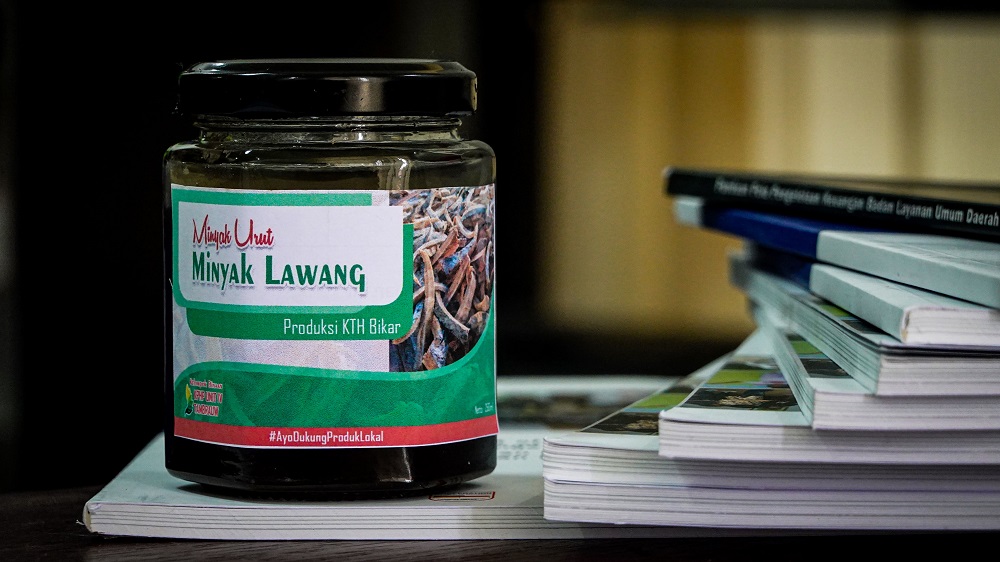
The Forest Farmers Group (KTH) in the village of Bikar is one of the KTHs that is being facilitated by Tambrauw Production Forest Management Unit (KPHP) Unit IV in Bikar Village, Tambrauw Regency, West Papua. This village works with several potential non-timber forest products (NTFPs), one of which is lawang oil, which is produced from mace trees (Cinnamomum culilawan). Lawang oil, an essential oil rich in eugenol, is believed to be an effective external medicine capable of relieving aches and pains and the symptoms of rheumatism, as well as accelerating the healing of wounds. Cinnamomum culilawan bark has been used for generations and managed traditionally by the people of Bikar. Usually, farmers require four to five days to produce this oil. The oil itself is processed in the forest at a location that can be reached from the village in one to two days. As a result, farmers usually camp in the forest. The lawang oil that is ultimately produced is sold to collectors in Sorong City in 5-liter jerrycans at prices that range from IDR 350,000 – IDR 400,000.
Based on the conditions outlined above, it is clear that the effort (energy, time, costs) expended by KTH is currently greater than the results obtained. As a result, more effective and efficient processing and marketing are needed so that farmers can enjoy improved benefits. For this reason, Tambrauw Production Forest Management Unit (KPHP) Unit IV, supported by FORCLIME, held a training session on the processing of essential oil and product packaging with an eye on improved product management. The training session was held from 1 - 2 December 2022 in Bikar Village, Tambrauw Regency and was attended by the Bikar Forest Farmers Groups, specifically 19 males and eight females.
The essential oil that is produced is packaged in ± 100 ml glass bottles. Meanwhile, the design of the product labelling highlights the identity of KTH Bikar as a group of NTFP owners and users and KPHP IV Tambrauw as the manager of the location.
One of the challenges associated with the production of essential oil through traditional processing is that the oil is not yet clear. In addition, to produce the oil, the community is still required to cut down trees. This means that the production system is unsustainable. In response to these challenges, KPHP IV Tambrauw and forest farmer groups have incorporated a programme that addresses the cultivation and planting of lawang trees into the Forest Farmers Group Work Plan. Through this plan, after the harvesting of the lawang tree has been completed, the farmers plant new trees to substitute for the ones that were cut down. This programme is implemented as a group. Meanwhile, in order to produce clearer oil, training sessions on product clarification are planned, while training sessions on product marketing will also be held.
For more information, please contact:
Melanesia Brigite Boseren, Junior Advisor for Rural Livelihood, Forest Management and Conservation
Mohammad Sidiq, Strategic Area Manager for Sustainable Forest Management and Coordinator for Papua and West Papua Provinces






